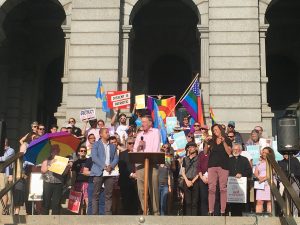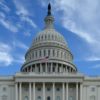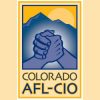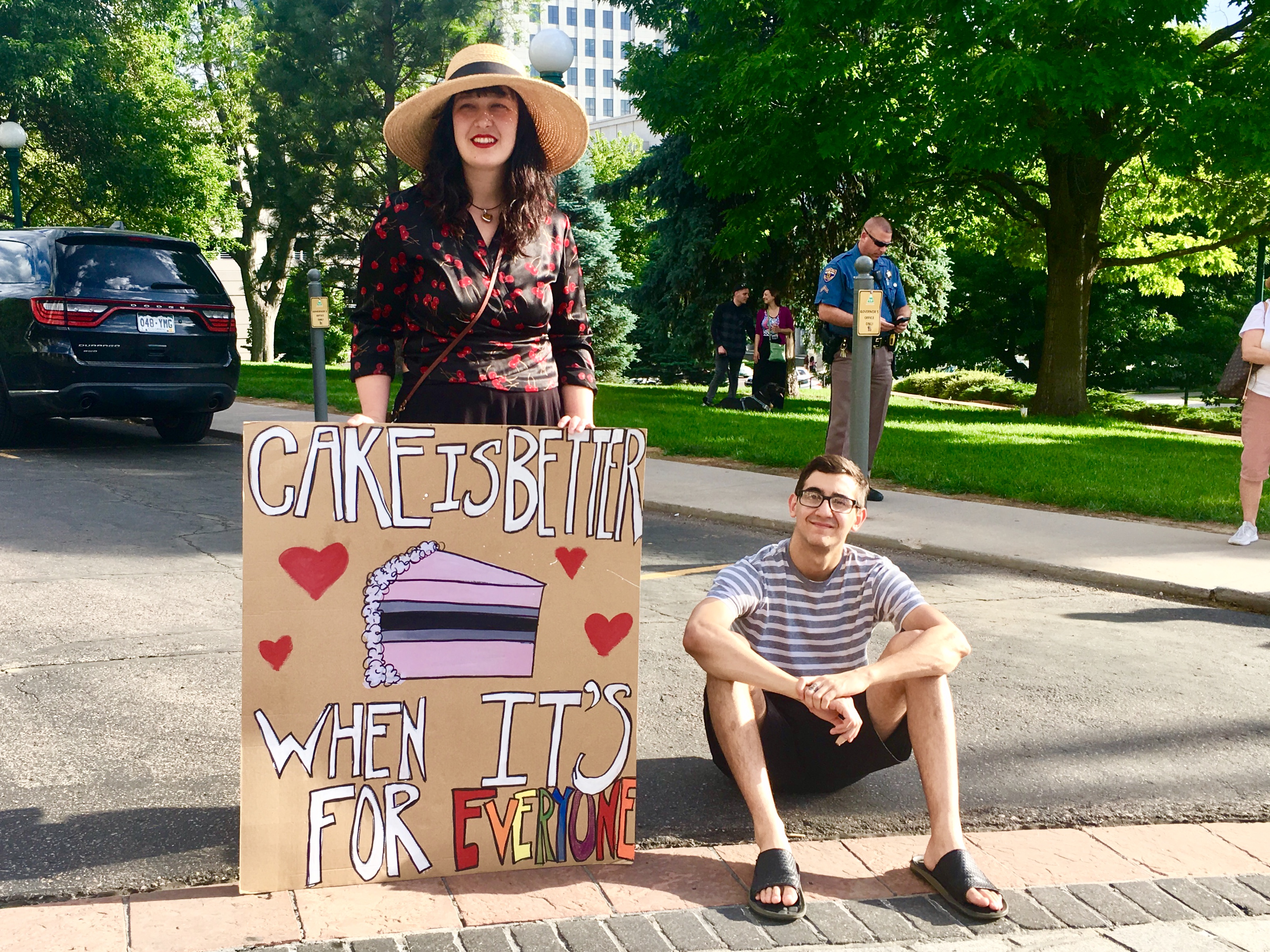More than 100 people showed up to a Denver rally to support the LGBTQ community after the U.S. Supreme Court ruled in favor of a Colorado baker who refused to make a wedding cake for a gay couple.
That gay couple, Charlie Craig and David Mullins, were joined outside Colorado’s Capitol Monday evening by activists, faith leaders, and prominent Democratic politicians, including Colorado Gov. John Hickenlooper and U.S. Rep. Diana DeGette (D-CO).

Mullins and Craig stopped into Masterpiece Cakeshop in Lakewood, CO, in 2012 hoping to order a cake for their upcoming wedding. But the baker, Jack Phillips, refused their request, saying he didn’t serve gay people due to his religious beliefs.
Phillips’ refusal was found to be in violation of state anti-discrimination laws by the Colorado Civil Rights Commission. But the case eventually rose to the U.S. Supreme Court, which decided in Phillips’ favor Monday.
“Today’s decision means our fight against discrimination and unfair treatment will continue,” said Craig. “Our case is not unique. Every day across the country, LGBTQ people face discrimination in every facet of life.”
DeGette called the decision a “wake up call” following broad victories for LGBTQ rights, like marriage equality, and encouraged people to recommit to the cause. “We thought we had triumphed over the forces of hate. But you know what? Those forces are still with us.”
Despite the 7-2 ruling against the couple, several speakers took a reassuring tone when addressing the crowd, pointing to the narrow ruling in the case.
Rather than addressing broader legal tensions between religious liberty and LGBTQ rights, the court based its decision on the Colorado Civil Rights Commission’s handling of the case.
The court determined that the commission was biased against religion and not sufficiently fair toward Phillips.
But the court did not diminish the state’s ability, through legislation, to protect a person’s right to enter any public space and buy a product or service, regardless of sexual orientation, gender, or race. The court also clarified that this case would not have a major effect on future decisions.
“Indeed what the baker and the anti-gay movement sought, they did not get,” said Denise Maes of the American Civil Liberties Union (ACLU), which represented the gay couple. “There is no First Amendment right to discriminate.”
Hickenlooper called the decision “disheartening,” but reiterated that the narrow ruling doesn’t change the fact that “businesses that are open to the public must be open to all.”
Hickenlooper also offered a message of encouragement to those who continue to face bias and bigotry.
“Hang in there,” he said. “Tomorrow will be better. It always is. As Martin Luther King Jr. said, ‘The moral arc of the universe is long, but it bends toward justice.'”
But still, progressives are concerned that conservatives will count the decision as a win and use it to bolster efforts to allow discrimination based on religious beliefs.
“Since this decision came out, we’ve already seen Colorado politicians saying they are going to use this,” said Colorado House Majority Leader KC Becker. “Since they don’t have a constitutional right to discriminate, they’re going to try to pass laws in Colorado to give a state right to discriminate.”
Echoing Becker’s concerns, Daniel Ramos of the LGBTQ advocacy organization One Colorado stressed the need to elect pro-equality state leaders.
“This November, we must defend a pro-equality majority in the House, we must elect a pro-equality majority in the Senate, and we must elect a pro-equality governor,” said Ramos. “Our rights depend on it.”




